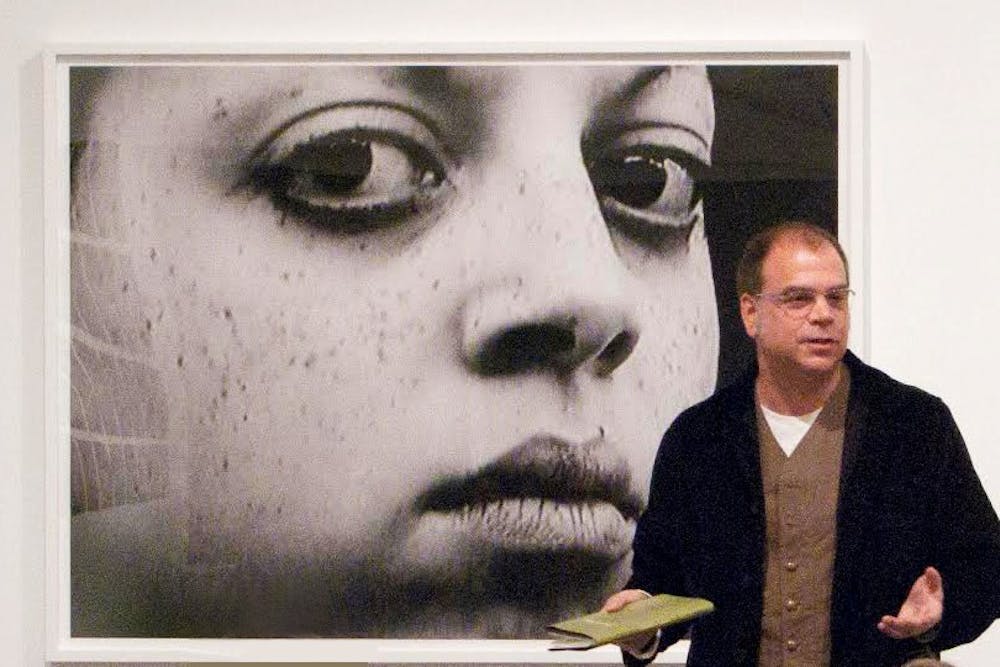PennSound’s Peter Gizzi was announced as a finalist for the National Book Award for Poetry for his collection of poems: Archeophonics.
Gizzi refers to the honor as a “happy accident.” Yet he has more than a few accolades to accompany this prestigious nomination.
In 1994 Gizzi received the Lavan Younger Poets Award from the Academy of American Poets. Through the years, Gizzi has also held residencies and fellowships from numerous literary foundations. Most notably, Gizzi held the position of Poet-in-Residence in the English Faculty at the University of Cambridge in 2011.
When Gizzi’s friend Charles Bernstein, who also served on Gizzi’s Ph.D. committee, was appointed as co-director of PennSound, Gizzi was invited to contribute his voice to some archival poetry pieces for the broadcast organization. PennSound is an archive for poetry recordings, run in part by the Center for Programs in Contemporary Writing and launched in 2005. Since Bernstein’s appointment, Gizzi has been a frequent contributor.
In writing Archeophonics, Gizzi said he wanted to “bring back the cadences of the past”.
“I felt like I had pressure to be the voice for poets, past and present,” he said.
Reviewers of Gizzi’s work couldn’t agree more.
In the words of a reviewer from buslter.com, Gizzi’s work can be summed up in one word: gorgeous. The review goes on to express appreciation for the collection’s integration of poetry and the purpose of humanity.
“I think of myself as a class of worker that has been around for millenia,” Gizzi said.
The review also praises Gizzi’s collection for offering a deep connection with the human species.
In another review published by publishersweekly.com, Gizzi’s poems are described as warm and moving while also offering a means of connection between “morality, tradition, and history.”
Gizzi’s work is more than just a insight to the deep connection between poetry and humanity, but offers insight on Gizzi’s influence throughout the course of his career: music and his poet brother.
His brother, Michael, was a poet and Gizzi grew up with his influence, but it never occurred to Gizzi that he would one day become a poet.
More than the influence of his brother on his future career, Gizzi said that the musician and 2016 Nobel Laureate, Bob Dylan, impacted his childhood and his decision to pursue poetry.
For new and upcoming poets, Gizzi said that the passion that is needed to write poetry cannot be feigned and must be genuine, and that students really need to understand what is required for a career in writing poetry.
In the words of Gizzi’s then-15-year-old grandson, “[Poets] work in the ghost world.”









